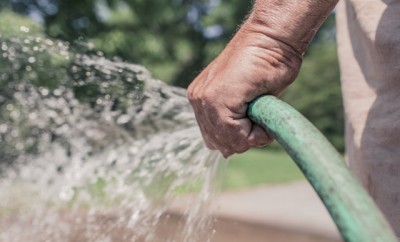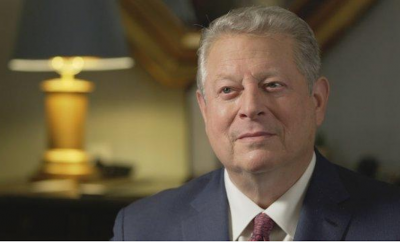Environment
How to De-Politicize Climate Change and Make a Bigger Difference Sooner

Image: Quick Shot/Shutterstock
Ever since climate change first came into widespread public consciousness in the mid-2000s, it’s been a politically charged topic. Our modern understanding of climate change in the general public can be easily traced back to Al Gore’s “An Inconvenient Truth.”
Considering the topic was brought to the public consciousness by a Democratic presidential candidate, that unfortunately took the topic to a political place and some people never quite recovered from it. Add to that the seemingly hyperbolic nature of the film, and it can feel like just yesterday that people were sitting around the dinner table stating that there was no way whole cities would be sunk Atlantis-style. Yet despite that, the film did its job and climate change is still in the public consciousness. It’s time to de-politicize climate change.
Lately the issue of climate change has hit yet another snag. The 2016 presidential election was proof that people still see climate change as anti-business, anti-American and environmentalism as a threat to the building blocks of our society. One only need look at Donald Trump’s tweets about climate change being a Chinese conspiracy to dampen American interests and signs of wanting to pull out of the Paris Agreement. And people who feel very anti-climate change may feel bolstered in their beliefs that climate change is just a bunch of tree-hugging, liberal hooey.
But honestly, all that just means we need to talk about it more. This is a good opportunity to keep climate change in the public eye and let people know you won’t be silenced on the issue. A new president doesn’t automatically erase hard scientific data. Yet it’s also easy to have the whole debate devolve into a shouting match where neither party is listening to each other. So below are a couple ways to broach the topic without ruining family get-togethers and losing all your friends. Here’s how to de-politicize climate change.
Avoid political jargon to start: Don’t open with “climate change,” “global warming” or say right off the bat it’s human made and every time we drive a gasoline-powdered car an environmentalist loses its wings. That takes the conversation to a place of political charge right away. Alternatives that don’t sweep the issue under the rug completely include “carbon pollution,” or even the more general “pollution.”
Calmly use facts, but not too many facts: Keep your cool. Never raise your voice, and take a few deep breaths if you need to. Calmly answer any shouting on the other end with calm facts. But don’t verbally overwhelm people with numbers. They’ll shut down immediately.
Talk about climate change in a positive and relatable way: Instead of all cold facts like rising sea levels, talk about the good fighting pollution can do. You can focus on the positive news stories about the green innovations that make our lives better and cooler, like Tesla vehicles and the recently opened Gigafactory with its thousands of U.S.-based automotive jobs. Or that over 360 big-name businesses and investors wrote a letter to politicians urging them to uphold the Paris Agreement because, as it turns out, environmentalism is phenomenal for businesses. Sustainably sourced food often allows for higher quality products, and company reuse programs can actually reduce costs or even turn a profit.
Begin to give climate change a positive connotation: Given how people feel, a new tactic has been to sweep the term climate change under the rug all together, like the Wisconsin DNR’s controversial decision to replace the term climate change on its website with vague phrases like “a changing world.”
Don’t always be afraid to call it what it is: climate change. Later in the conversation when people are more open, you can slip in the term climate change subtly. Don’t feel silenced, don’t hop the issue and use the current terminology among actual scientists. That will allow the conversation to come from a place of general openness.
The fact is, the biggest prejudice against climate change is the fear that it will hamper businesses and economic growth. People hear “climate change” and think about some jobless hippie commune where no one’s allowed to work because work makes carbon.
The goal now may be to show people not that the polar bears are dying, but that environmentalism can benefit us all, no matter where our political affiliation lies. Then maybe, eventually, fighting climate change will come to be synonymous with job growth and cool tech. In that way, climate change conversations can be less about yelling and shutting each other out, and more about sharing our own enthusiasm for a topic.





0 comments